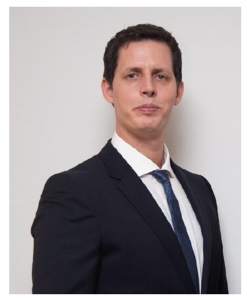Robert Tomasetti

Robert Tomasetti won the National Science Foundation’s Graduate Research Fellowship in 2019. The five-year fellowship includes three years of financial support, including an annual stipend of $34,000 and a cost of education allowance of $12,000. The NSF GRFP recognizes and supports outstanding graduate students in NSF-supported STEM disciplines who are pursuing research-based master’s and doctoral degrees at accredited US institutions.
Originally from the Milwaukee-Chicago metropolitan region, Robert attended the University of Hawaii at Manoa before enrolling at FIU. He chose FIU for his doctoral studies because of its geographical proximity to the Gulf of Mexico and the Caribbean. “I’ve also been fortunate to be paired with an excellent research laboratory at FIU, the CRUSTOMICS Lab of Dr. Heather Bracken-Grissom,” he says.
Robert has worked in non-governmental organizations, non-profit organizations, government agencies, private marine laboratories, and environmental consulting firms. His research focuses on how algal diversity is distributed across oceans, and he wants to provide insight into other marine organisms, particularly those associated with coral reefs. His goal is to create a regional-scale connectivity network for coral reefs in the Atlantic Ocean.
“My pursuit of a PhD is to assist my goals of running a marine fieldwork and data collection program at the intersection of science and public policy,” Robert says.
Attending Dr. Lori Schweikert’s grant-writing workshop was instrumental in putting together a winning fellowship application, Robert says. He also credits his success to having strong letters of support for his proposed research. “Having someone experienced view and critique my writing assisted me in restructuring my thoughts and figures in a more compelling manner,” he says.
Robert believes that applying to competitive fellowships is important for doctoral students because prestigious fellowships can have far-reaching effects upon one’s future career. Even the process of applying to fellowships yields valuable benefits.
“I have found that formulating my ideas and addressing my research interests in the structured manner of a grant application resulted in clarification of my weaknesses and served to assist the process of writing my PhD proposal,” Robert says. “From a pragmatic perspective, even if one does not succeed in gaining funding or a specific opportunity, the exercise of working under a deadline and receiving peer feedback can help solidify your goals.”



